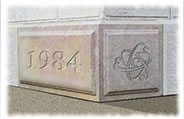The Last Prejudice
“Prejudice is being down on something you’re not up on.”
-Anonymous
How about a gated country club, inhabited by blacks and whites, considering the membership application of a Vietnamese American couple?
How about a New York City business club, all men on the membership committee, evaluating the application of a 32 year old Cherokee woman from Portland?
How about a private church school, evaluating the application of a ten year old physically challenged test champion, whose parents are a married gay couple?
How about an employment committee at an elite architectural firm, evaluating the application of a stage designer with no college degree, but with field experience designing venues for Cirque du Soleil?
It appears that there is a great “prejudice” on the part of the word and number people toward those who rely on pictures, emotion and intuition. Words and numbers are “readable,” they are “witnessable” and explainable… at least to word/number people communicating in words and numbers. Historically, word and number people dominated the landscape… particularly when it was a thousand times harder to communicate pictures and emotions to the masses. But look at what’s happening to print and numeric communication these days… print and numbers are tapering off, and video and graphics are picking up in huge amounts as IT services make it easier to add visuals, video and music to the communication mix. It’s a much more “flavorful world.”
In earlier times the literate/numerate people “defined the nature and the limits of the game” for everyone else, and they didn’t make room for those who are equally intelligent, but differently articulate. It’s the word/number people who create intelligence tests. If that isn’t institutionalized prejudice, what is? As the IT world starts to make more “channels” available to those who are pictorially, video, emotionally, and entrepreneurially articulate, the game becomes more rich and varied; and there are more colors in the tapestry. Perhaps the “smart” numerate, verbally articulate people don’t see the value of intuition, pictorial intelligence, or social skills. They’ve erected the Bastions of Intellectual Achievement, and fear the “hordes waiting to storm the battlements.” Logic “can’t calculate” or “see the value” of “mere emotion.” Indeed. Perhaps because logic can’t “see;” it can only calculate. Hmmm… Perhaps Intuition is senior to Logic.
Literacy is a multi-meaning word. It’s a great attribute to have, and those who aren’t “literate” are at a disadvantage, but they may not be as incompetent or un-thoughtful as the word and numbers people have implied. “There may be more kinds of intelligence than are dreamed of in your philosophy, Horatio.” The book, “The Hungry Spirit,” catalogs differing flavors of intelligence: physical, entrepreneurial, spatial, social, etc. and suggests that the culture is not yet sophisticated enough to recognize and value all of these diverse talents; that we have set up barriers to people who may be brilliant in their own right, but are not interested in the word and number skills.
Maybe we have to recognize that we are all incomplete in different ways.Perhaps the purpose of a family (or a leadership team) is to put all the kinds of intelligence and perception to work on a problem together. We get in trouble when we try to celebrate one kind of intelligence or perception as senior to all the others. Maybe we really do need each other.
Applications
Personal: Check your assumptions. Who is in your club? Is there a trace of “Not our kind, dear” in your considerations of who fits and who doesn’t? Is there a particle of rightness about your viewpoint?
At work: We need to make space for each other’s talents and skills – from the visionaries to the tacticians.
In the community: Get yourself on the hiring or membership committee, and inch the door open just a little wider!
There is no “either/or”; the “and” makes a whole tapestry. We really do need each other. It’s high time we all “get down with what we’re not up on!”
Subscribe to our Newsletter


